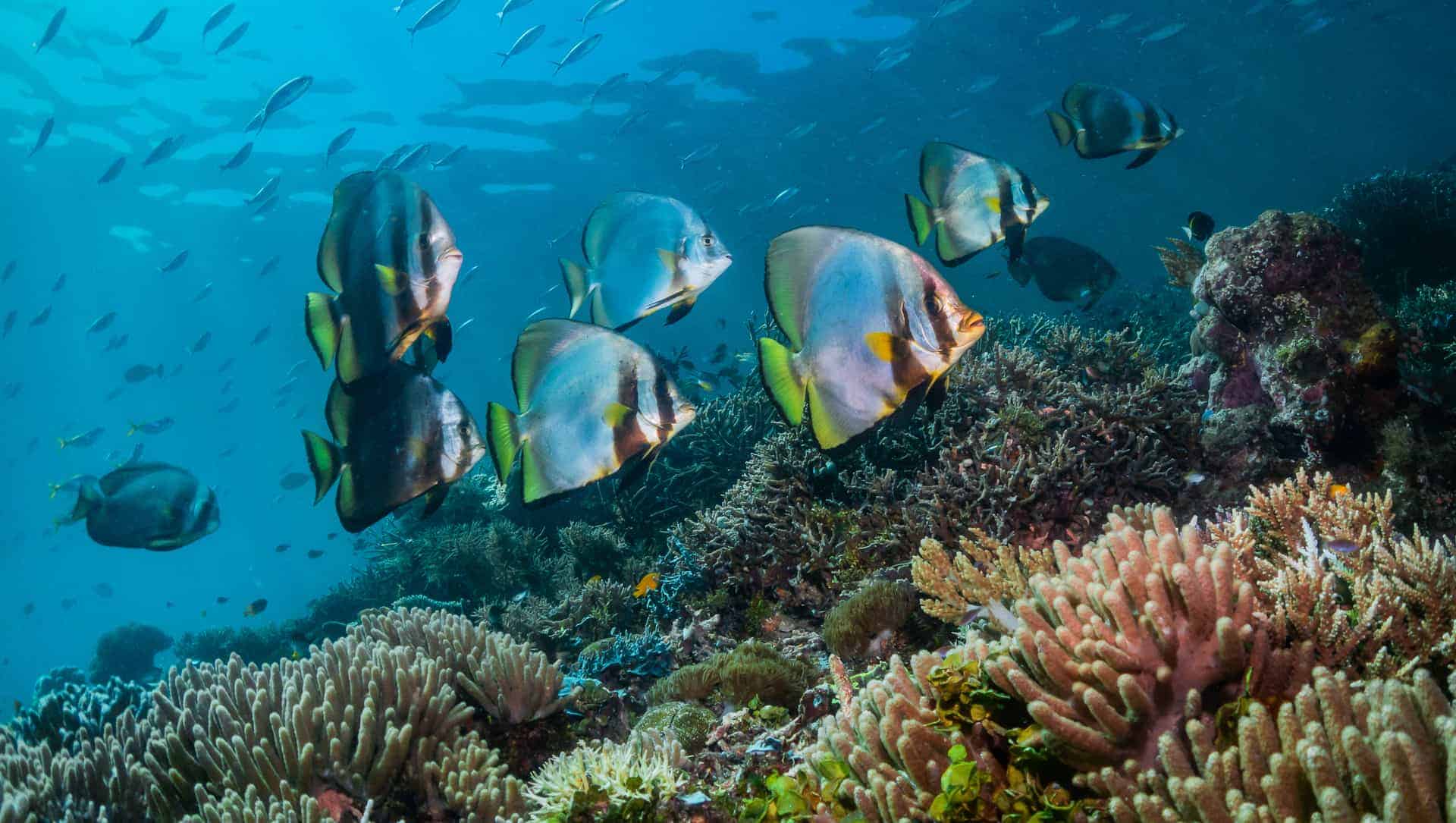Submitted by Reef Check Malaysia
Reef Check Malaysia (RCM) has been up to a lot these last months of 2023!
In mid-October, our RCM colleagues, together with Sabah Forestry Department, WWF-Malaysia, Forever Sabah, and PACOS Trust, organized the “Sabah State Conference on Community Based Marine Resource Management” in Sanadakan. This conference saw participation from Sabah Biodiversity Centre, Sabah Parks, the Ministry of Natural Resources, Environment and Climate Change, and the Department of Fisheries Malaysia, fortified by indigenous communities’ distinctive knowledge and profound connection to coastal ecosystems.


A mapping exercise during the conference revealed that 17 coastal community groups in Sabah are protecting more than 12,000 hectares of marine and coastal areas, spanning from Mantanani Island, Kudat, Pitas, Sandakan, Kinabatangan to Semporna. While the figure is impressive, multiple stakeholders are strategizing to appropriately recognize these areas as Other Effective Area-Based Conservation Measures (OECMs) to support marine conservation in Sabah, harnessing the power of local solutions in the face of global climate change.


RCM staff in Sabah also participated in a series of four online training sessions on Reef Star Welding. These Reef Star frames that are to be used for restoration projects must be made by trained welders. In the first session, the local welders were taught about the suitable materials used for the frames, the angle of the steel and all other requirements for the frames. The following sessions included introduction to the items and equipment, site selection, and the MARRS coral restoration techniques. This project is a collaborative effort with Sabah Parks and funded by the Ministry of Tourism, Culture and Environment Sabah. Towards the end of October, 250 Reef Stars with more than 4300 coral fragments were deployed with the help of the Selakan Youth Group and the local community.
Our colleagues have also been actively running school education programs on the islands we work on. In Tioman, the program with SK Tekek, the local primary school in Tekek Village continued with a session on turtles. Our colleague from Sabah also participated, as he was on a study trip to learn more about all our programs on Tioman. Meanwhile in Mersing, RCM staff conducted a tidal walk with students of a local secondary school. During the educational tour, students were introduced to the fascinating marine organisms that inhabit the intertidal rocky shore environment. They also were reminded of activities completed in previous months, with an emphasis on the message of caring for coastal beaches to provide a better home for marine organisms.


In November, RCM staff in Mersing also conducted a two-day marine awareness and conservation program with Mersing’s local youths, between the ages of 15-18 years old. It consisted of indoor engagement activities and educational tours to marine ecosystem sites and conservation centers. This program was organized in collaboration with the YSEALI Council of Malaysia (YCOM) and Mersing District Council, with support from Pejabat Daerah Mersing, Tengah Island Conservation, the US Embassy in Kuala Lumpur and YSEALI.


Our colleagues have also been conducting skills training sessions for representatives from the local community, to get them more involved in the work we do. One local community member and one tourism operator were recently certified as EcoDivers and they will soon be helping us with the Reef Check surveys around Mersing. Around the same time, we also organized a SCUBA diving certification course for four local youths from the Mersing Islands, an initiative supported by the Star Foundation in Malaysia. This program is an ongoing initiative aimed at enhancing the capacity of local youths and the community to actively engage in ongoing marine conservation initiatives with us in the Mersing Islands.
In early December, RCM, in collaboration with Sabah Parks, organized the Sabah Reef Resilience Workshop in Semporna, attended by 22 participants from different agencies and organizations. This workshop is part of the Community-Based Coral Conservation & Restoration Project funded by the Ministry of Tourism, Culture, and Environment of Sabah (KePKAS). The three-day workshop consisted of theory and knowledge-sharing on the importance of reef resilience. Participants had the opportunity to get hands-on experience while putting their theoretical skills into practice. During a visit to Selakan Island, participants learned and familiarized themselves with the methods, underwater indicators and reef resilience assessments at two sites, namely Tanjung Kenanga and Southrim, within Tun Sakaran Marine Parks.


 Subscribe to Newsletter
Subscribe to Newsletter Donate
Donate Shop
Shop 0
0






























